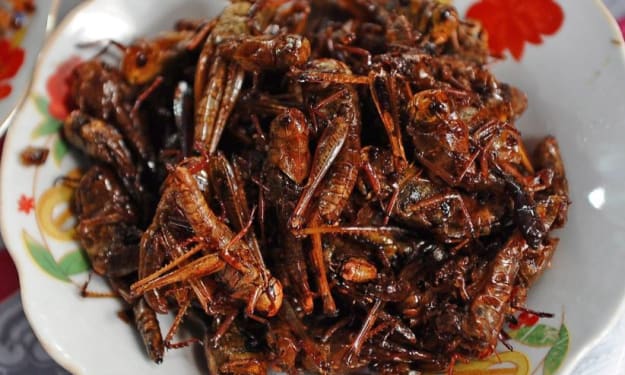
From fast food staples to everyday grocery items, the foods we consume often undergo manufacturing processes that may give us pause. Let's delve into some common foods and reconsider their place in our shopping carts:
1. Chicken Nuggets: While convenient and crispy, the process of making chicken nuggets involves mechanically separated meat, including less desirable parts like cartilage and skin. Additives and preservatives further compromise their nutritional value and raise concerns about animal welfare and environmental impact.
2. Hot Dogs: Made using mechanically separated meat from various animal parts, hot dogs are seasoned, stuffed into casings, and often contain sodium nitrite, linked to cancer risk. Environmental and ethical concerns surrounding factory farming add to the reasons for reconsideration.
3. Processed Cheese: Processed cheese, while affordable and long-lasting, contains additives and stabilizers, diminishing its nutritional value compared to natural cheese. Environmental concerns of dairy farming also contribute to its reconsideration.
4. Instant Noodles: Quick and cheap, instant noodles undergo a process involving high fat content and excessive sodium levels. Environmental concerns arise from palm oil usage and plastic packaging.
5. Canned Meat: Often made from low-quality cuts, canned meat products contain high levels of sodium and preservatives linked to chronic health issues. Environmental concerns surround factory farming and its impact.
6. Marshmallows: Gelatin, derived from animal parts, raises ethical concerns, prompting a search for gelatin-free alternatives.
7. Margarine: Made from vegetable oils, margarine undergoes hydrogenation, leading to trans fats. Additives and environmental concerns of palm oil production further complicate its consumption.
8. Soda: High in sugar and artificial additives, soda consumption poses health risks and environmental concerns from production to disposal.
9. Farmed Shrimp: Though seeming sustainable, shrimp farming practices contribute to pollution, habitat destruction, and human rights abuses.
10. Foie Gras: Produced through force-feeding ducks or geese, foie gras raises ethical and animal welfare concerns, prompting alternatives.
11. Commercial White Bread: Refined flour and additives in commercial white bread contribute to health issues and environmental concerns of wheat production.
12. Canned Vegetables: High temperatures during canning reduce nutrient content, while added salt and sugars contribute to health risks and environmental impact.
13. Imitation Crab: Made from processed fish paste, imitation crab contains high sodium levels and artificial additives.
14. Prepackaged Salads: Concerns of contamination and environmental impact prompt consideration of fresh, locally sourced alternatives.
15. Food Colorings: Synthetic food colorings pose health risks, urging consumers to opt for natural alternatives.
16. Packaged Fruit Snacks: High sugar and artificial ingredients in packaged fruit snacks raise health and environmental concerns.
17. Factory Farmed Eggs: Conventional egg production practices raise animal welfare and environmental concerns, prompting alternatives.
18. Corn Syrup: High fructose corn syrup poses health risks and contributes to environmental degradation in its production.
19. Conventionally Grown Strawberries: Pesticide use in conventional strawberry farming raises health and environmental concerns, advocating for organic options.
20. Artificial Sweeteners: Artificial sweeteners raise concerns about safety and environmental impact, encouraging natural alternatives like stevia or honey.
21. Frozen Dinners: While convenient, frozen dinners often contain high levels of sodium, preservatives, and additives to enhance flavor and prolong shelf life. The production process involves extensive packaging, contributing to plastic waste and environmental concerns. Additionally, the nutritional content of frozen dinners may be lacking in essential vitamins and minerals compared to freshly prepared meals. Opting for homemade or freshly prepared frozen meals with whole ingredients can offer a healthier and more environmentally friendly alternative.
In reconsidering our food choices, we can prioritize health, sustainability, and ethical practices, leading to a more mindful and responsible approach to consumption.
In conclusion, understanding the manufacturing processes and ingredients of common food items prompts us to reevaluate our choices for the sake of our health, the environment, and ethical considerations. From fast food favorites to everyday grocery items, each product carries implications beyond mere convenience or taste. By opting for alternatives that prioritize nutritional value, sustainability, and ethical production practices, we can make more informed decisions that align with our values and contribute to a healthier planet for future generations. Let's be mindful consumers, conscious of the impact our food choices have on our well-being and the world around us.
About the Creator
MAD
Hi, I’m MAD and nothing will stop me from being successful! Subscribe for more madness ❤️






Comments
There are no comments for this story
Be the first to respond and start the conversation.